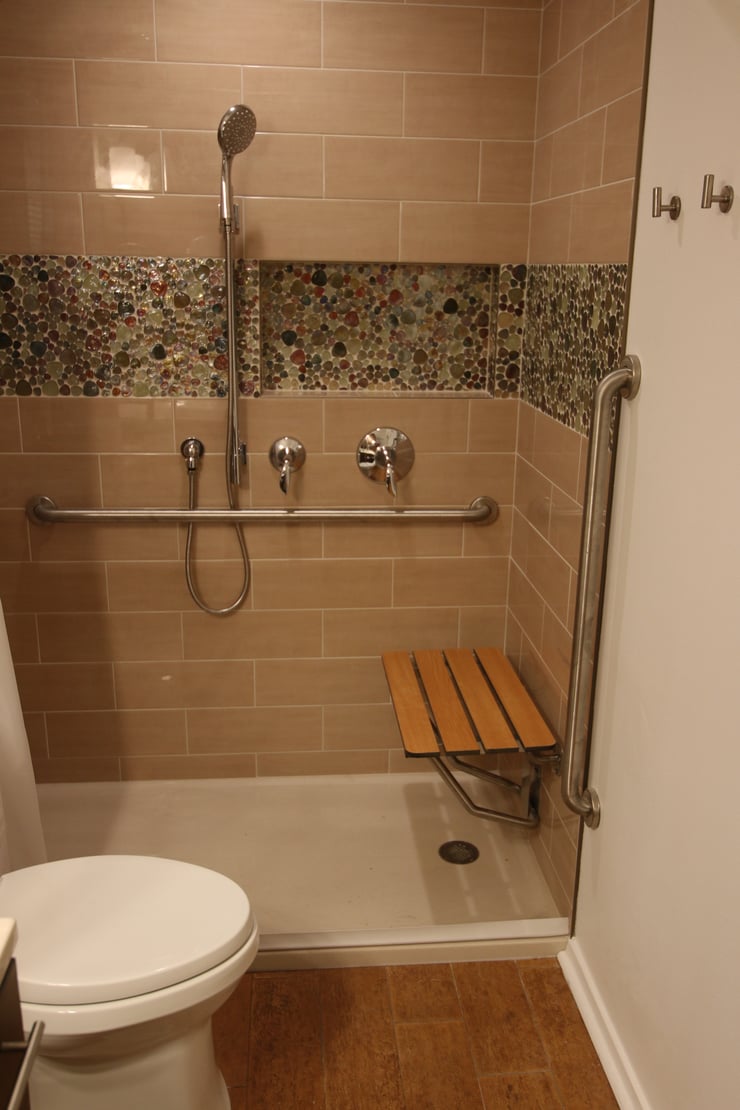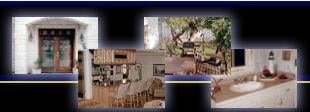Accessible housing generally refers to the construction or modification such as through renovation or home modifications of housing to enable independent living for persons with disabilities. Accessibility is achieved through architectural design, but also by integrating accessibility features such as modified furniture, shelves and cupboards, or even electronic devices in the home. Access is typically defined within the limits of what a person sitting in a wheelchair is able to reach with arm movement only and with minimal shifting of the legs and torso. Light switches and thermostat controls should not be above 48". Power outlets should be installed at 18" so they don't end up below the reach of a person in a wheelchair.

Owning and maintaining a home is one of the most significant investments any homeowner ever does. But for individuals and veterans living with disabilities, or seniors aging in place, the fact that much of the world outside is not built to accommodate their needs strengthens the value of a comfortable home. It’s vital they and their loved ones have access to the best resources about how to make their homes livable and enjoyable.
Human problems must also be solved using correct designs. Aging in place has stemmed from people who have become seriously injured, people living with a debilitating disease, people with sensory limitations or intellectual limitations, and last but not least the people who are planning to stay in their homes for as long as possible all need accessible homes. The need for dealing with disabilities empowers us all to ensure that we create environments wherein people can function effectively. This situation does not come along at any particular age or warning signs in our lives. No longer are handicap home modifications viewed as a resale market diminishing factor. They are becoming a resale enhancer when you look at all the people in the nation simply needing accessibility in the bathroom to uphold their dignity and safety. We can show you how to remodel for accessibility as one of Austin's premier handicap remodeling contractors specializing in accessibility. The National Association of Home Builders, in partnership with the AARP and Home Innovation Research Labs, created the CAPS program, which includes training and education on the technical, business management and customer service skills essential to compete in the fastest growing segment of the residential remodeling industry--home modifications for aging in place and ADA accessibility in Austin, Texas. David L. Traut, CAPS the owner of T-Square Company in Austin, Texas is one of the select group of professionals nationwide to earn the Certified Aging-In-Place Specialist (CAPS) designation, identifying him as a home remodeler and builder with the skills and knowledge necessary to remodel or modify a home to meet the unique needs of the older population, disabled owners, or their visitors. We specialize in providing design/build services to our customers with special needs and mobility issues.
When mobility becomes an issue for any homeowner, regardless of age, the question arises concerning physically moving to a different home with a bath that is more accessible. Preparing for one of those highly likely events involving someone in your home needing room modifications for even a short time while recovering from surgery is surely a smart move. Solving aging in place issues will soon become the number one challenge concerning the present obsolete housing inventory in our country. Our present day obsolete homes now inhabited by the baby boomer generation will slowly and increasingly raise their outdated and obsolete ugly heads and expose their true lack of kitchen or bathroom accessibility to those very people inhabiting them.










